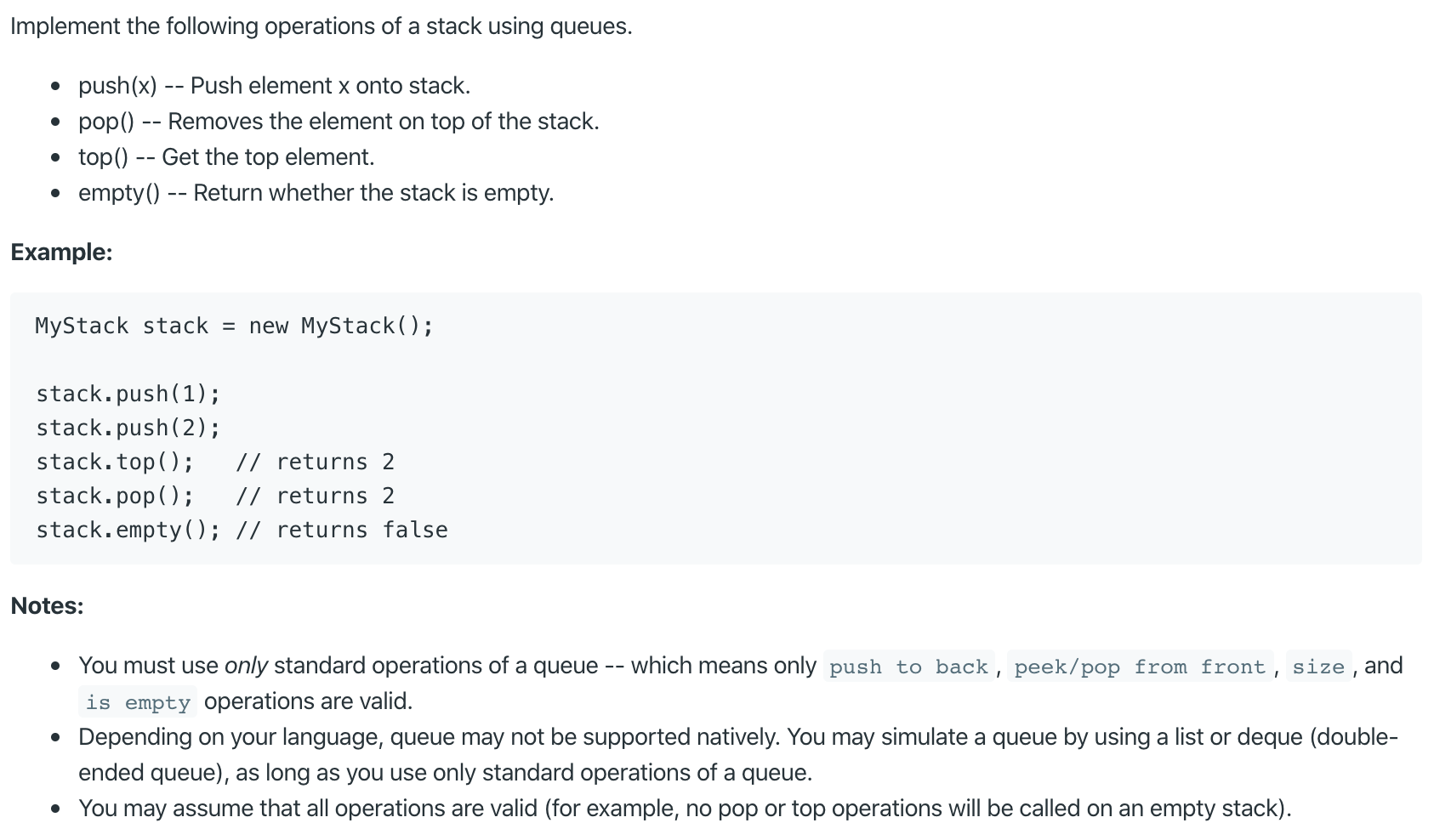Implement Stack using Queues
franklinqin0 DesignStackQueue

# Solution
There is no need to implement using 2 queues, as a queue does not change the order of elements after popping and pushing.
# One Queue
There are 2 similar implementations w/ similar runtime: built-in list [] or collections.deque.
Complexity
time: push , pop
space:
# Built-in List
class MyStack:
def __init__(self):
"""
Initialize your data structure here.
"""
self._q = []
def push(self, x: int) -> None:
"""
Push element x onto stack.
"""
self._q.append(x)
for _ in range(1,len(self._q)):
self._q.append(self._q[0])
self._q.pop(0)
def pop(self) -> int:
"""
Removes the element on top of the stack and returns that element.
"""
return self._q.pop(0)
def top(self) -> int:
"""
Get the top element.
"""
return self._q[0]
def empty(self) -> bool:
"""
Returns whether the stack is empty.
"""
return not self._q
1
2
3
4
5
6
7
8
9
10
11
12
13
14
15
16
17
18
19
20
21
22
23
24
25
26
27
28
29
30
31
32
33
34
2
3
4
5
6
7
8
9
10
11
12
13
14
15
16
17
18
19
20
21
22
23
24
25
26
27
28
29
30
31
32
33
34
# Deque
from collections import deque
class MyStack:
def __init__(self):
"""
Initialize your data structure here.
"""
self._q = deque()
def push(self, x: int) -> None:
"""
Push element x onto stack.
"""
self._q.append(x)
for _ in range(1,len(self._q)):
self._q.append(self._q.popleft())
def pop(self) -> int:
"""
Removes the element on top of the stack and returns that element.
"""
return self._q.popleft()
def top(self) -> int:
"""
Get the top element.
"""
return self._q[0]
def empty(self) -> bool:
"""
Returns whether the stack is empty.
"""
return not self._q
1
2
3
4
5
6
7
8
9
10
11
12
13
14
15
16
17
18
19
20
21
22
23
24
25
26
27
28
29
30
31
32
33
34
35
2
3
4
5
6
7
8
9
10
11
12
13
14
15
16
17
18
19
20
21
22
23
24
25
26
27
28
29
30
31
32
33
34
35